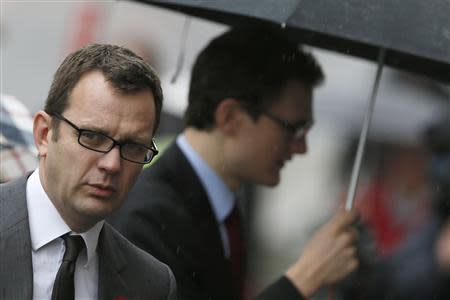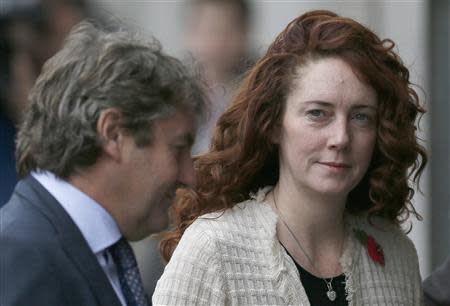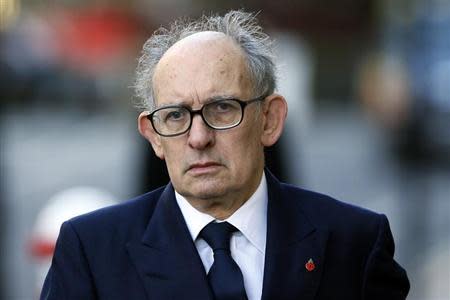UK trial told Murdoch ex-editor Coulson is honest and straightforward
LONDON (Reuters) - Andy Coulson, the former editor of Rupert Murdoch's News of the World tabloid who is on trial over alleged phone-hacking offences, is honest and would not seek a story "at any cost", a close friend told a London court on Wednesday. Coulson, 45, who edited the paper until 2007 before later becoming Prime Minister David Cameron's media spokesman, is accused of conspiring to hack the voicemails of mobile phones of famous people to get exclusives. Rebekah Brooks, another former editor who went to run the British newspaper business of Murdoch's News Corp empire, faces the same charge, which they both deny. Dean Keyworth, who had known Coulson for 26 years from the time he was in journalism school, said he was a loyal, self-deprecating friend. "He was very ambitious but he always seemed to have a very pragmatic approach to things," Keyworth told London's Old Bailey, England's central criminal court. "(He) wanted to get stories and do a good job but not at any cost." Coulson and Brooks are accused of overseeing widespread phone-hacking while they were in charge at the Sunday tabloid between 2000 and 2007. Three former senior journalists have admitted the phone-hacking conspiracy and Glenn Mulcaire, a private eye paid large sums by the paper, has pleaded guilty to carrying out the phone-hacking, including tapping the voicemails of missing 13-year-old schoolgirl Milly Dowler who was later found murdered. Revelations of the hacking of her phone in July 2011 provoked a public furor which led Murdoch to close down the 168-year-old paper and prompted Cameron to order an inquiry into press ethics. The court has been told how journalists on the paper believed Dowler might have sought work at a factory in Telford, central England, based on a message wrongly left on her phone by a recruitment agency, which the News of the World had accessed. A team of reporters and photographers was sent to Telford where they approached staff at the agency, falsely purporting to be working with the police, according to witness statements read to the court. One woman had phoned the agency, claiming to be Dowler's mother, the jury heard. "I have to say it was very scary," said Valerie Hancox who ran the agency and was visited at her home by a reporter. In a statement, Vanessa Altin, one of the reporters sent to Telford, said they had realized quickly the mission was "pointless and a waste of time". A story about Dowler appeared in the paper the following Sunday under the name of Robert Kellaway, but he told the court he had had no involvement at all with any of the reporting. He said sometimes journalists were given a "byline" as a favor from their bosses. "It's slightly ironic this might have been a professional favor," Kellaway said about the story which ultimately led to the paper's closure. (Reporting by Michael Holden; editing by Stephen Addison)




